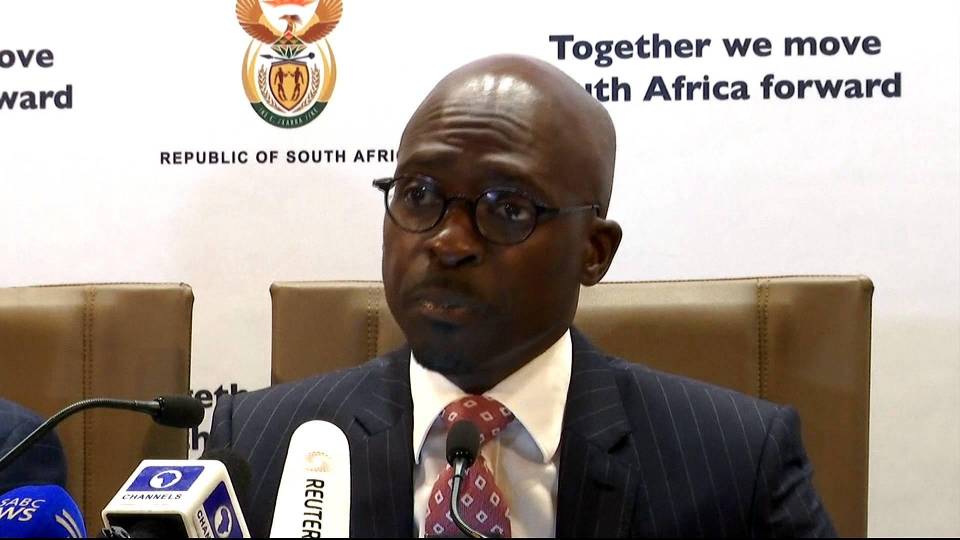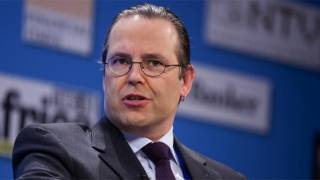South Africa's New Finance Minister to 'Radically Transform' Economy
South Africa’s new finance minister has pledged to “radically transform” his country’s economy, signalling a dramatic swing to the left less than 48 hours after taking up his post.
Malusi Gigaba was appointed after president Jacob Zuma sacked his widely respected predecessor, Pravin Gordhan, in an overnight cabinet purge last week. The move, late on Thursday night, triggered a political crisis, pitching the ruling African National Congress party into chaos.
Wealth redistribution is presumably a coded phrase for stepping up White dispossession https://t.co/5cN4Uk95p7
— Kevin MacDonald (@TOOEdit) April 1, 2017
The ANC, which came to power in South Africa’s first free elections in 1994, now faces one of its biggest tests since leading the struggle against the apartheid regime.
Radical economic change in the political language of the ANC means the redistribution of wealth, land and opportunity to the black majority.
“I will not be distracted by issues that are not relevant to the task at hand: accelerating radical economic transformation,” Gigaba said. “For too long, there has been a narrative or perception around treasury, that it belongs primarily and exclusively to ‘orthodox’ economists, big business, powerful interests and international investors. The ownership of wealth and assets remains concentrated in the hands of a small part of the population. This must change.”
Gigaba’s pledge suggests the ANC, hit by a decline in support in the recent poll, will bank on populist economic measures to reverse its electoral fortunes. Though the ANC still has massive support, the unprecedented loss of major municipalities to a coalition of opposition parties after local elections last year is a concern as national polls loom in 2019.
South Africa has struggled to deliver growth in recent years and failed to improve the lives of millions of its poorest citizens. More than 90% of the country’s wealth is still in the hands of only 10% of the 54 million inhabitants. Ownership of land and companies remains mostly in the hands of South Africa’s white communities, who account for about 8% of the population.
Gigaba also told reporters on Saturday he was committed to protecting South Africa’s cherished investment-grade credit ratings, which analysts have said are now threatened by the removal of his predecessor, Gordhan.
Gigaba, who was previously home affairs minister and is a Zuma loyalist, said: “I am fully aware that we are at a highly politicised, polarised and contentious moment in the history of our young democracy.”
Zuma’s enemies within the ANC are backed by increasing numbers of anti-apartheid veterans, trade unions, civil groups and business leaders. The divisions within the party, which dominates parliament, were underlined by an unprecedented verbal attack on Zuma from the country’s deputy president, Cyril Ramaphosa.
“I told him that I would not agree with him,” Ramaphosa said. “There are quite a number of other colleagues and comrades who are unhappy about this situation … The minister of finance … was serving the country with absolute distinction. For him to be removed … is to me unacceptable.”
South Africa’s Communist party, a historic ally of the ANC, called on Zuma to resign.
However the youth wing of the party welcomed the wide-ranging cabinet reshuffle and the appointment of “experienced and intelligent” Gigaba. “Younger ministers will mean more transformation,” ANC Youth League leader Collen Maine said, citing land redistribution, free education and the creation of a state bank as reforms the youth league wanted.
Zuma, 74, said in a statement the reshuffle was intended “to bring about radical socioeconomic transformation and to ensure that the promise of a better life for the poor and the working class becomes a reality”.
Zuma’s move has been variously interpreted as an attempt to install a minister who would allow populist measures which would reverse the electoral fortunes of the ANC blocked by Gordhan; to gain control of the finance ministry to allow deals favoured by allies in the south African business community; and to control the selection of his successor.
Zuma will step down as ANC president later this year. His replacement is likely to lead the country if, as widely predicted, the party wins elections due in 2019. Many pundits say the ANC may win less than 50% of the vote, which would be a major blow.
Nkosazana Dlamini-Zuma, the president’s ex-wife and former African Union chief, is Zuma’s preferred candidate to succeed him. She may be able to shield him from looming graft charges after he is out of office, but she has little support among the ANC’s electoral base.
Zuma has repeatedly been accused of corruption, with intense scrutiny of his ties to a family of local tycoons. He has denied any wrongdoing.
The crisis may offer South Africa’s two main opposition parties an opportunity to make inroads into the ANC’s core support. The far-left Economic Freedom and the centre right Democratic Alliance said they would make a no-confidence vote in parliament. The ANC has a near two-thirds majority in the 400-seat national assembly and can block any such move to oust Zuma if its lawmakers rally behind their leader.






















